An Air Force F-22 Raptor prepares to receive fuel from a KC-135 Stratotanker during Exercise Red Flag over Alaska, Aug. 5, 2020.
Providing up-to-date information, news and original content on American Military issues.
An Air Force F-22 Raptor prepares to receive fuel from a KC-135 Stratotanker during Exercise Red Flag over Alaska, Aug. 5, 2020.
Soldiers prepare to hook a pallet of equipment to the underside of a CH-47 Chinook helicopter during sling-load training at Grafenwoehr Training Area, Germany, Aug. 5, 2020.
Air Force Airman Steffon Brownjohnson signals that a Navy C-2A Greyhound is ready to launch abroad the USS Ronald Reagan in the Pacific Ocean, Aug. 6, 2020.
Brutus, a Golden Retriever with the Kare 9 Military Ministry, attends the August Daily Herald Cruise at Bloomingdale Court, Illinois, August 6 2020. All dogs of the ministry are purebred Golden Retrievers, with the original eight being named after military working dogs that were killed in the line of duty in Vietnam. (U.S. Army photo by Spc. Maximilian Huth)
Aircraft assigned to the Thunderbirds, the Air Force’s flight demonstration team, perform aerial maneuvers at Joint Base Andrews, Md., Aug. 6, 2020.
Secretary of Defense Dr. Mark T. Esper announced today that the president has made the following nomination:
Air Force Lt. Gen. David D. Thompson for appointment to the rank of general, with assignment as vice chief of space operations, U.S. Space Force, Pentagon, Washington, D.C. Thompson is currently serving as vice commander, Air Force Space Command (redesignated U.S. Space Force), Pentagon, Washington, D.C.
Aug. 7, 2020 | BY Marine Corps 1st Lt. Timothy Hayes , Marine Corps Installations Pacific
Okinawa Government representatives met with Marine Corps Installations Pacific leaders and medical professionals to discuss COVID-19-related information at Camp Foster Naval Hospital.
Testing capabilities, tracing efforts and reporting procedures of both the Okinawa prefect and U.S. military entities were among the many topics discussed during the July 15 meeting.
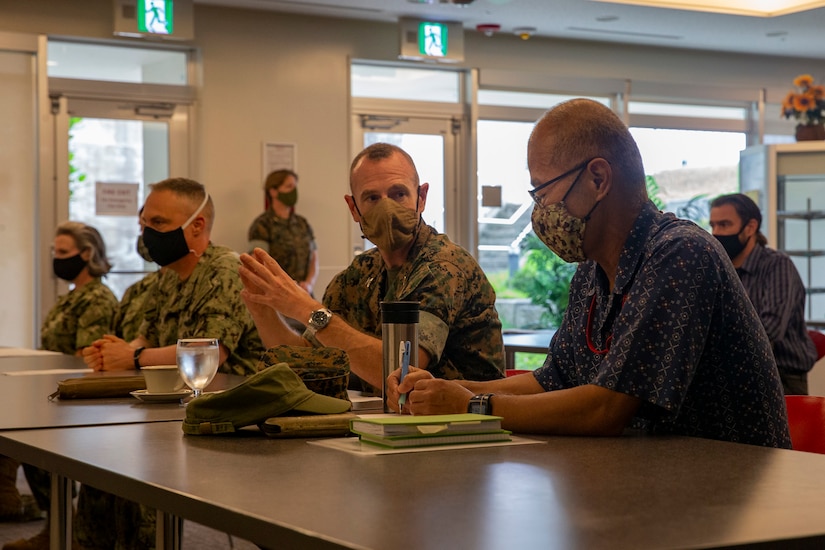
"We are genuinely open to communicating so that both the U.S. military and Okinawa government can fight the spread of COVID-19," said Marine Corps Col. Neil Owens, director of government and external affairs for Marine Corps Installations Pacific.
Members of each party expressed their concerns and ideas regarding Okinawa's current COVID-19 situation. One topic of importance was the preventive measures each entity has put in place to fight the spread of COVID-19. MCIPAC recently enacted enhanced protective measures, limiting on-base activities and prohibiting off-base activities as part of their combined efforts.
Navy Capt. David Krulak, commanding officer of U.S. Naval Hospital Okinawa, reassured the Okinawa government representatives that the hospital has aggressively tested large numbers of people at once. He also expanded upon tracing efforts, noting that the naval hospital contact-trace teams investigate asymptomatic individuals back at least 10 days to locate any close contacts who indicate a need for testing.
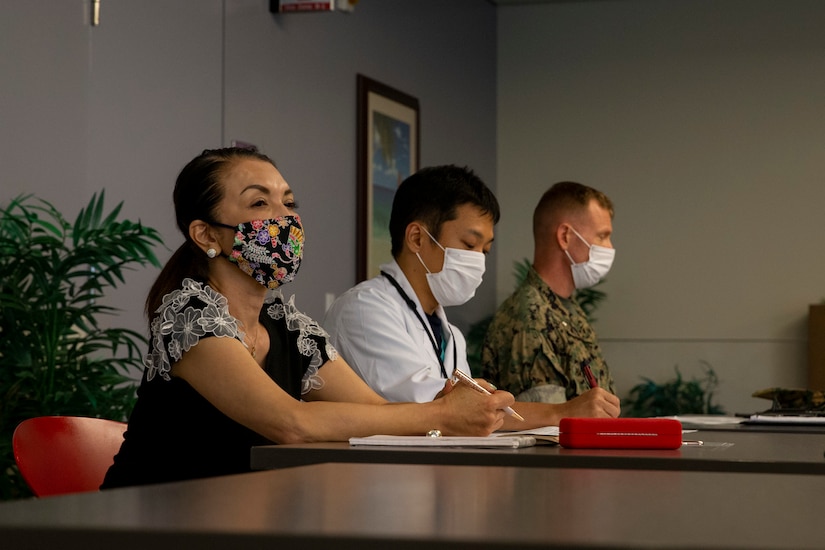
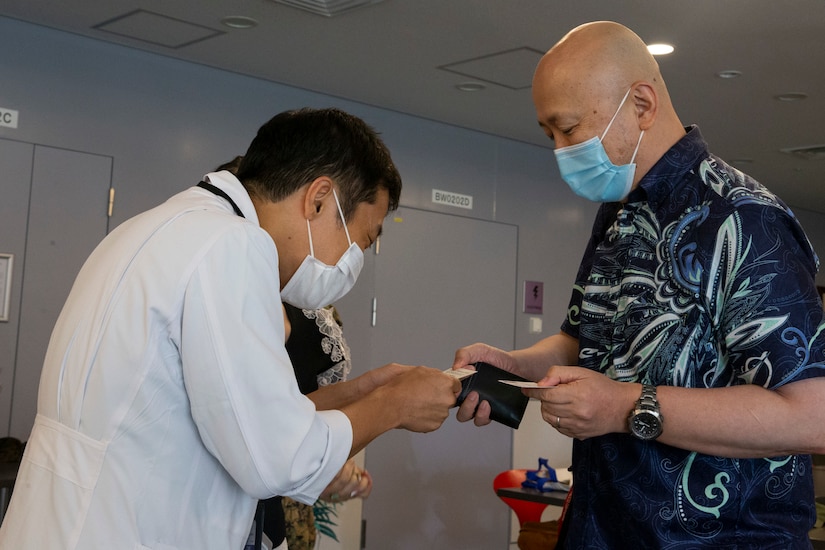
The military and government leaders agreed to continue open communication and to meet regularly via teleconference to ensure proper protective measures are in place.
"We will continue to work closely to ensure the health of all people on the island," Krulak said during his closing remarks.
Aug. 7, 2020 | BY Michelle Gordon
To encourage donations, as well as to assist current COVID-19 patients with recovery, the Armed Services Blood Program at Fort Bliss, Texas, is screening all blood donations for COVID-19 antibodies.
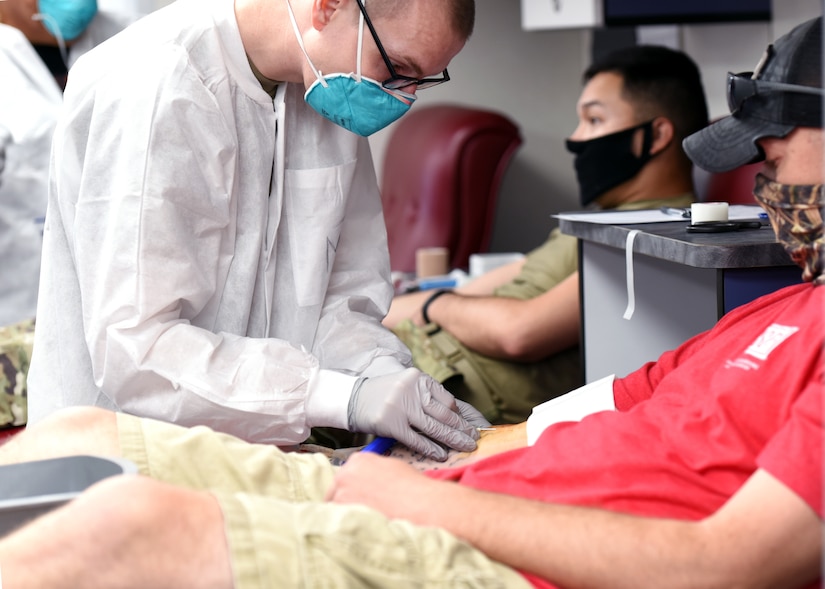
''With the COVID-19 antibody testing, the patient experience is exactly the same as a traditional blood donation; there is nothing different,'' said Army Spc. Christi McRae, a laboratory specialist with the 440th Blood Support Detachment at Fort Bliss. ''The blood is sent to an offsite testing location to see if there are any antibodies within the plasma. If there are, it indicates the patient came into contact with the COVID-19 virus at some point, and their body has built up antibodies to fight against it.''
McRae said the antibodies do not indicate immunity from the virus. It simply means the patient was exposed to it. ''It could mean they had it and recovered,'' she explained, ''or they just came into contact with [the virus] and their body was able to react and develop those antibodies without actually getting ill.''
After donation, the patient will not be contacted again if their blood tests negative for coronavirus antibodies. If it tests positive, they will be called and encouraged to donate plasma, because research shows the antibodies help current coronavirus patients recover much faster.
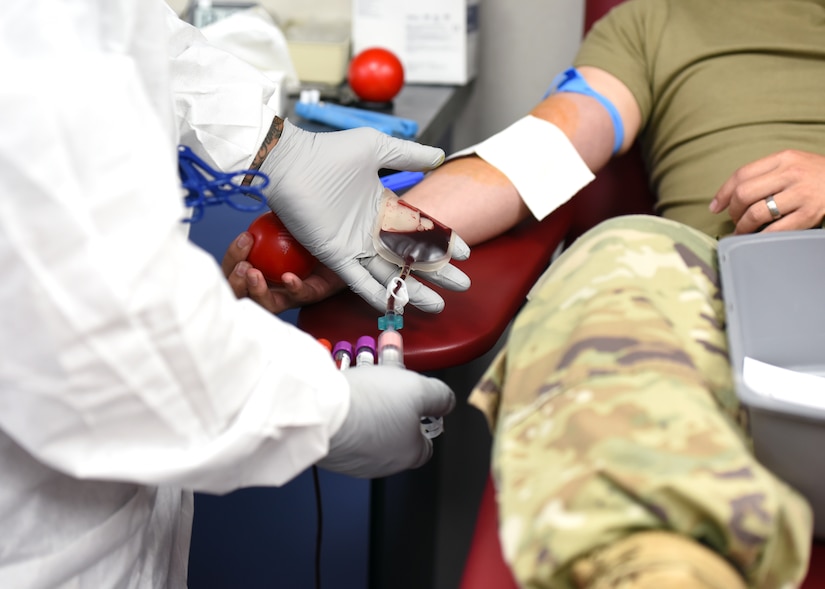
''Your body is super intelligent,'' McRae said. ''Once you have been exposed to something you make those antibodies, so, when and if you come into contact with it again, your body already has an answer and knows how to react. We do not know how long COVID-19 antibodies remain in each individual's system, so it is important to donate blood soon after recovery or suspected exposure.''
McRae hopes the antibody testing will encourage more people to donate blood because the Defense Health Agency has been tasked to collect 8,000 to 10,000 units of COVID-19 antibody-containing plasma before Sept. 30.
The Armed Services Blood Program at Fort Bliss routinely hosts blood drives with its blood donation bus. Army Staff Sgt. Chris Frost with the 2nd Battalion, 501st Aviation Regiment, said he saw the bus and stopped to donate because he has blood type O negative, which he said is always in high demand.
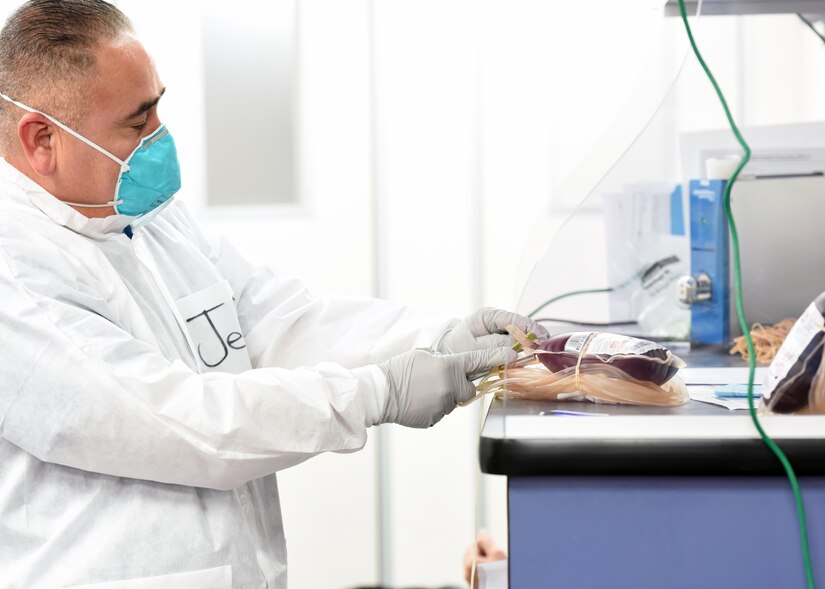
''A few minutes of my time could mean the lifetime of somebody else, because this blood is potentially on its way over to Afghanistan to save somebody's life,'' he said. ''So, a little bit of my time to save some of my brothers, I'm OK with it.''
Nearly all blood products collected at Fort Bliss are sent downrange, McRae said. ''Even though we are here fighting COVID-19, we still have missions around the globe. We have to keep that in mind and make sure we have the lifesaving blood products we need to ensure our men and women come back home safely.''
(Michelle Gordon is assigned to Fort Bliss.)